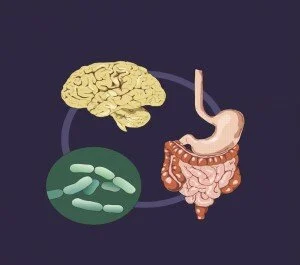Probiotics, often referred to as ‘good bacteria’, are known to promote a healthy gut, but can they promote a healthy mind? Exploring the new world of neurological probiotics, researchers in BioEssays present new ideas on how neurochemicals delivered directly to the gut, via probiotic intestinal microbiota, exert their beneficial effects in maintaining gastrointestinal health and even psychological well-being.
 The research, led by Professor Mark Lyte from Texas Tech University Health Sciences Center,1 proposes that through a unifying process of microbial endocrinology, neurochemical-producing probiotics could act as a delivery mechanism for neuroactive compounds that could improve a host’s gastrointestinal and psychological health.
The research, led by Professor Mark Lyte from Texas Tech University Health Sciences Center,1 proposes that through a unifying process of microbial endocrinology, neurochemical-producing probiotics could act as a delivery mechanism for neuroactive compounds that could improve a host’s gastrointestinal and psychological health.
“This paper proposes a new field of microbial endocrinology, where microbiology meets neuroscience,” said Lyte. “There is already evidence to suggest that the connection between gut microbes and the nervous system represents a viable route for influencing neurological function. A recent study in mice, for example, showed that the presence of neurochemicals such a serotonin in the bloodstream was due to direct uptake from the gut.”
In his hypothesis Professor Lyte considers the selection of probiotics, such as lactobacilli and bifidobacteria, and how the active uptake of neurochemicals, generated by bacteria in the gut and circulated through a patient’s bloodstream, represents a pathway for probiotics to exert extra-intestinal effects including behavioral changes.
Writing in a commentary piece in the same issue of BioEssays Professor Gregor Reid, from the University of Western Ontario,2 outlines some of the potential clinical implications of this research.
“Until recently the idea that probiotic bacteria administered to the intestine could influence the brain seemed almost surreal”, said Reid, “Yet in Lyte’s paper the concept is supported by studies showing that microbes can produce and respond to neurochemicals, which can induce neurological and immunological effects on the host.”
“The research presents an idea for selecting probiotic strains with neurological applications and linking this with immune-modulatory effects, while highlighting the fact that microbial strains already being widely ingested in fermented food can produce neurochemicals,” concluded Reid. “Could this mean that adjunct treatment for people suffering from certain types of mental health problems is a fecal transplant? Food for thought.”
| Resources from Wiley on This Topic | |

|
Probiotics and Health Claims
by Wolfgang Kneifel and Seppo Salminen |
1. Mark Lyte (2011). Probiotics function mechanistically as delivery vehicles for neuroactive compounds: Microbial Endocrinology in the design and use of probiotics BioEssays, 33 (8) : 10.1002/bies.201100024
2. Reid, G. (2011). Neuroactive probiotics BioEssays, 33 (8), 562-562 DOI: 10.1002/bies.201100074
